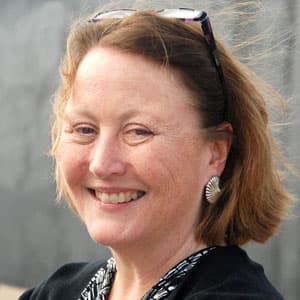Advertisement
Mass. Has New K-12 Standards For Digital Literacy, Computer Science

Massachusetts public schools may start using new digital literacy and computer science standards as soon as this fall. The state board of elementary and secondary education unanimously approved the standards, which are voluntary, at its monthly meeting Tuesday.
"Today's vote recognizes the importance of digital literacy and computer science to modern life, work and learning," board chairman Paul Sagan said in a statement. "These standards will help our students think about problem solving in new ways and introduce them to valuable skills they will need in today's economy."
In addition to computer science, the standards include updated expectations for digital literacy, such as appropriate online behavior, evaluating sources for accuracy and bias and the importance of reporting cyberbullying.
"Massachusetts is ahead of most other states in developing computer standards," Commissioner Mitchell Chester said in a memo to the board, "and is an innovator in explicitly integrating those with standards for digital literacy."
The state Department of Elementary and Secondary Education developed the standards along with educators and industry representatives, then revised them after gathering public comments. The department said in a statement it will continue to collaborate with the Massachusetts Computing Attainment Network, or MassCAN, to help districts implement the standards. MassCAN, funded by the Massachusetts Technology Collaborative, Google, Microsoft and other companies and foundations, advocates for expanded computer science education.
The department is also partnering with the Education Development Center, MassCAN's lead partner, on a $2.1 million, three-year National Science Foundation grant, intended to develop elementary curriculum units that integrate computational thinking in math and science classes. One feature of the new standards is that they're aligned with existing state standards in English language arts, science and math.
"I'm thrilled to have been part of this historic vote, which came after the state worked with a range of educators and industry representatives to make these standards relevant to today's students," James Peyser, education secretary, said in a statement. "Our next step is to see how we can help develop the capacity to incorporate these standards more fully into the K-12 curriculum."
The new standards have four "strands," or topics: "Computing and Society," digital tools and collaboration, computing systems and computational thinking. In each strand, the standards are designed to grow more complex and sophisticated as students progress from kindergarten on through to 12th grade.
Kindergartners, for example, could be asked to develop a simple algorithm, or sequence of steps, without using a computer: "Tell me how to make a sandwich." They'd learn the basics of computer safety, practice using a keyboard and create a simple program using a language like Scratch.
By fifth grade, they'd be knowledgeable about copyright issues, type 25 words per minute, be able to describe the differences between hardware and software and know how to use a spreadsheet. They'd also be able to discuss cyberbullying, including "harassment, flaming, excluding people, outing, and impersonation" and know how to combat it.
In middle school, students would be creating digital portfolios, multimedia blogs, webpages and online surveys. They'd understand the different kinds of content licenses, explore how digital media can distort and misrepresent facts, create programs with loops and conditional statements and know the difference between a motherboard and a CPU. In addition, they could "relate the distribution of computing resources in a global society to issues of equity, access, and power."
And high-schoolers? They'd "cultivate a positive web presence," understand the benefits and harmful effects of computing innovations, write more sophisticated programs and design and develop "a significant digital artifact" such as a multipage website, multimedia online portfolio or sophisticated simulation.
The state frameworks, which include the standards along with recommendations for their implementation, note that programs meeting the standards would require "coherent district-wide planning and ongoing support for implementation," including a district coordinator, "engaging, challenging, and accurate curriculum materials," accurate assessment tools and "extensive professional development." They recommend that middle- and high-school computer science courses be taught by teachers certified in that area.
The document does not discuss funding mechanisms for these requirements.
In other actions, the board:
- Approved a 2 percent raise for Commissioner Mitchell Chester, saying he rated 4.7 out of 5 in his annual performance review. The board did recommend that he continue to work on increasing the diversity of the department's staff, particularly its leadership team. And board member Margaret McKenna asked for more focus on closing the achievement gap between students of color and their peers. "Massachusetts is No. 1, Massachusetts is No. 1 -- I'm really tired of hearing that," she said. Instead of thinking about national rankings, she'd like to work on improving education for all students here.
- Praised receivers in the Lawrence, Holyoke and Southbridge districts for the progress they saw in the districts' year-end reports. Southbridge receiver Jessica Huizenga noted the district is "aggressively recruiting" new teachers.
- Raised concerns about the four Level 5 schools presenting year-end reports, particularly Dever Elementary in Boston. McKenna again: "So this is a school that's had six principals in two years. ... This is a disaster." Board member Donald Willyard asked Chester, "At what point do we say enough is enough?" Chester called it a "fair question" but said, "I'm not ready to give up on" the receiver, Blueprint Schools Network. In addition to a new principal at Dever, the board learned that UP Academy Holland principal Jabari Peddie is moving to UP Dorchester, to be replaced by Holland's current director of curriculum, Hillary Casson.
- Heard an update on "MCAS 2.0," the standardized test that's due to replace MCAS and PARCC. Deputy Commissioner Jeff Wulfson said it's "on track" and the department is negotiating with the vendor Measured Progress to provide services, as well as with the PARCC consortium to grant permission to use some items from that test. Wulfson said fourth- and eighth-graders will all be expected to take the computer-based version of the test in spring 2017, as part of a phase-in plan that will have all tests administered on computers by 2019.
- Declined a request to overrule Chester's denial of increased enrollment for the Pioneer Valley Chinese Immersion Charter School, saying it was not a question of the school's quality but that the request for more seats should come with the school's application to renew its charter in August.
